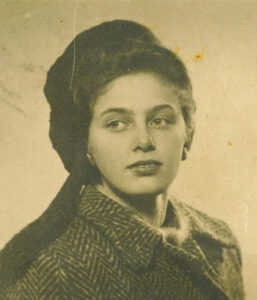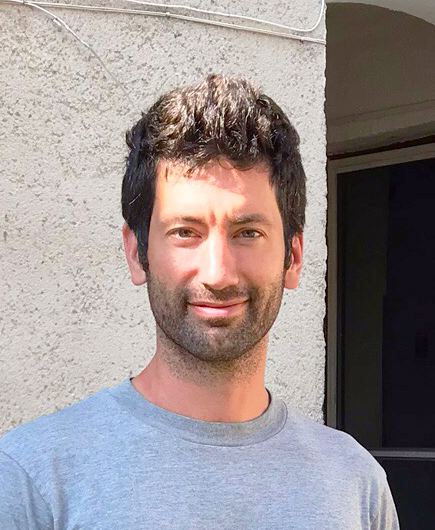By Melissa Wagoner
Growing up, Michael Turner knew that his Hungarian grandmother, Lici, was a Holocaust survivor and that both her parents and sister were killed in Auschwitz. But it wasn’t something Lici talked about – at least not with her grandson.
“When I was in high school, some video producers came and interviewed my grandma about her experiences in the Holocaust…” Turner recalled, “and it was life-altering for me to see that a camera could get her to open up about something that private.”
That event forever changed what Turner knew about his grandmother, but it also introduced him to a new passion – filmmaking.
“That was my first time seeing a camera setup, the lights, testing the sound equipment. There was just something special about it,” Turner recalled.
Inspired, Turner began taking video productions classes, first in high school and then in college, where he immersed himself in the study of documentaries.
“‘Documentary at that time was a very niche genre, seen as educational or boring,” Turner said. “It wasn’t until college that I started seeing documentaries that were funny, poetic, complex, more personal than anything I’d seen in feature filmmaking. I’ve been following that path ever since.”
And he’s been experiencing success, initially with the award-winning documentary, The Way We Talk – which chronicles Turner’s own experience with stuttering – and now through Monument, an exploration, not only of his grandmother’s experience of the Holocaust, but of his own journey toward understanding.

“The film is me following in her footsteps, to places she talked about in her interviews, and talking to people who could tell me about what happened, and what it means to remember these people who are no longer here,” Turner said. “Why is it important? What lessons can we learn for today? It was a very emotional experience for me.”
And the project itself – born out of the grief he felt in the aftermath of the mass shooting at the Tree of Life Synagogue in 2018 – felt timely.
“My daughter was two and the world she was growing up in seemed to be getting scarier and scarier…” Turner explained. Remembering, “the morning after the shooting, scenes and ideas started pouring out – memories of my grandma, things she’d said, my ideas of what it meant to be Jewish, how it affects you as a kid to learn about the Holocaust, that shattering of innocence… that feeling that the world is not the place you had imagined it to be.”
Unable to question Lici herself – she died in 2011 – Turner was forced to rely on an album of photos taken before the war, the original videotaped interviews, and a memorial Lici had inexplicably commissioned in her hometown of Sarvar, Hungary in 1996.
“My grandma never talked with us about what happened to her and her family, how they lived and how they died, but she’d created this memorial,” Turner said, “and I had this feeling like she made it for us to go find it when we were ready. When I needed it. And after the Tree of Life shooting, feeling all this anxiety about the world my daughter was growing up in, I needed it.”
And it began to feel like the world needed it as well.
“The 2020 protests for racial justice happened while we were working on the film, and suddenly monuments went from an obscure subject to being talked about every night on the news,” Turner recalled. “People were having conversations about what a monument was for… why did this particular person get a monument, whereas this individual did not. ” Suddenly, the documentary began to take shape.
Turner flew to Hungary with his producer, Alfred Lee. They visited Sarvar and the monument.
“We spent ten days there filming with anyone who would talk to us, and slowly got a picture of how the Holocaust is remembered in Hungary – or rather, how the government tries to erase that part of history from the national conversation,” Turner said. “It was very eye-opening for me and made me look at how our country remembers (or tries to forget) the most troubling parts of our history.”
Now complete, Monument has been screened at festivals across the country including the Miami Jewish Film Festival. Turner is sharing it with his own community of Silverton, too. The Palace Theatre will hold a special screening on Thursday, March 14 at 6 p.m. It will also be shown at Salem Cinema on Sunday, March 24 at 6 p.m. More info is at monumentfilm.org.
“I hope that they can learn about what happened and recognize its echoes in the world today. It feels very urgent to me. I don’t know if we’ll ever be able as a species to not fear and hate people who are different than us, but if we learn about these patterns, I hope that we will be better equipped to recognize bigotry and intolerance when we see it, and stand up for the vulnerable.”
